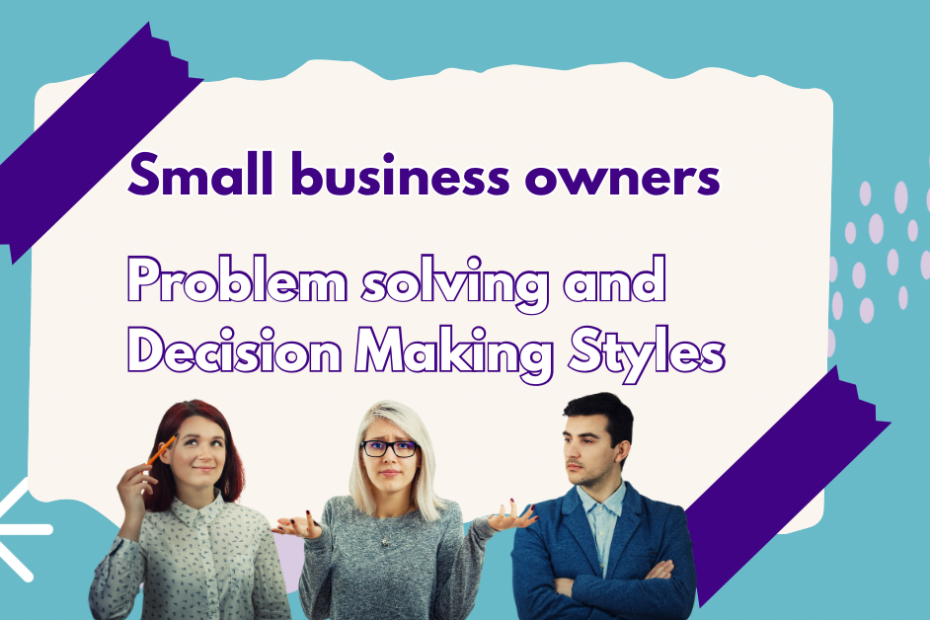If you’ve spent any time in small business Facebook groups or LinkedIn circles, you’ve probably seen posts like:
“Hey everyone, does anyone know a good supplier for custom coffee cups with my logo on them? TIA ”
And you might have thought… why not just Google it and call the suppliers first? The truth is, the business owners who move fastest don’t rely solely on strangers online. They take direct action first — Google a few suppliers, make some calls, ask specific questions — and then use online communities to narrow down their choices, get real experiences, or discover insights they wouldn’t find anywhere else.
This approach — acting first, consulting second — separates businesses that make progress from those stuck waiting for answers. It’s a subtle shift, but it changes everything about how you solve problems, gather information, and make decisions.
The Quick Answer Trap
Asking online feels easy. It’s convenient, low effort, and there’s a small thrill in seeing responses trickle in. Plus, it’s safer in a weird way — someone else already tested the supplier, right? You get reassurance (although often from strangers you’ve never met) without having to do the legwork yourself.
Here’s why I reckon people do it:
- It’s easier – asking a group feels like a shortcut to research.
- It feels safer – hearing “I’ve used them, they’re great” beats reading sales copy.
- It’s habit – some people treat Facebook groups like Google with opinions.
- It’s fishing – maybe they don’t want a supplier, they want to see what everyone else is doing.
- They lack confidence – some solo and small business owners aren’t sure what to do next, so they ask others for guidance.
- Sometimes it’s laziness– sometimes it’s because the idea of having a business is enticing but they want others to “do it for them”.
But here’s the catch,asking strangers won’t always get you the best answer. You’ll get a bunch of random names, some useful, some not, and you’re still left to sort it out.
Examples We’ve All Seen
It’s not just coffee cups:
- A jewellery maker asking for packaging suppliers instead of calling local manufacturers.
- A small bakery asking for POS system recommendations online instead of speaking to providers directly.
- A freelance designer looking for co-working spaces or studio rentals posting in a group rather than contacting spaces to check availability and rates.
Each time, the “quick post” feels easier, but the time spent waiting for replies, chasing down half answers, or getting irrelevant suggestions often outweighs the effort of calling or emailing yourself.
A Real-Life Example: When Asking a Group Works
Sometimes, asking a group is the smart move — but only if it’s done intentionally. For example, I was looking to change my tax agent for my small business. Instead of randomly browsing or calling everyone, I asked in a small business group I’m part of.
I was specific about what I wanted, someone experienced with small businesses, responsive, consistent and a clear pricing structure. I asked there because I wanted to draw on the experiences of other small business owners. As expected, a lot people in the group were tax agents themselves, and others recommended agents they’d used.
One agent emailed me directly, and after visiting the websites of my shortlisted options, one stood out as the best fit. I contacted them, spoke with them, and knew immediately they were the right person for my business.
The Hidden Cost of Relying on Others
Relying on strangers for solutions often gives you:
- Random or incomplete suggestions or too much information/people pushing their services/products
- Outdated information
- Advice that might not fit your business at all
- Frustration when replies are slow or conflicting
Sometimes, it’s just habit. Social media has trained us to treat groups like Google with opinions. You post a vague question, (hmmm there’s a theme developing here) hope for magic, and… sit there.
Direct Action Wins for Small Business
The businesses that actually move forward? They pick up the phone. They email suppliers. They ask specific questions. They check details themselves.
When you act directly, you:
- Get accurate, real-time answers
- Build relationships with suppliers or partners
- Discover insights you wouldn’t get from someone else’s experience (minimum orders, hidden fees, lead times, etc.)
- Save time — often hours — compared with waiting for online responses

Reflect on Your Approach
Posting in a group is just one example of how you tackle problems, gather information, and make decisions. The way you approach these things shapes your business outcomes far more than luck or social media posts.
Ask yourself:
- How do I usually solve problems? Do I take action quickly, or do I wait for someone else to show me the way?
- Where do I gather information? Am I relying on instinct, Google, social media, or conversations with experts?
- How do I make decisions? Do I weigh options, get multiple perspectives, or act on incomplete information?
- Am I systematic or reactive? Am I approaching problems strategically or putting out fires as they come?
Research shows that structured problem-solving and informed decision-making are linked to higher business performance. For an audio recording about integrative decision making try this podcast episode from Harvard Business Review.
Your business isn’t just shaped what you do — it’s shaped by how you think. Reflecting on your process can reveal patterns that either help or hinder your growth.
Posting in a group is just one way to improve small business problem solving, but it should complement, not replace, direct action and informed decision-making.
Reflection Checklist: How Do You Solve Problems in Your Small Business?
Take a few minutes to honestly answer these questions — no judgment, just clarity.
- Where do I start?
Do I act immediately, research thoroughly, or ask others first? - How do I gather information?
Am I relying on instinct, Google, social media, mentors, or direct conversations with experts? - How do I make decisions?
Do I compare options, make quick calls, or wait for someone else’s opinion? - Am I systematic or reactive?
Do I have a process for solving problems, or do I only deal with them when they become urgent? - What patterns are helping or hindering me?
Are my methods leading to action and results, or am I spinning my wheels waiting for advice and validation?
Tip: Write down your answers and see if there are areas where you can take more direct action. Even small changes in how you gather information and make decisions can save hours and improve small business problem solving.
Balance Community Input with Action
Online communities have value: inspiration, shared experiences, perspective. But they shouldn’t replace the work of running your business. Here’s a smarter approach:
- Use groups for ideas, not solutions. Inspiration over outsourcing.
- Ask specific, actionable questions. “Which supplier offers compostable coffee cups under 500 units with custom printing?” beats “anyone know a supplier?”
- Move forward while you wait. Make calls, research options, test ideas. Don’t sit idle hoping for magic replies.
The Bigger Picture for Small Business Owners
At the end of the day, this is about mindset. Solo and small business owners face a constant flow of decisions, problems, and unknowns. How you gather information and act on it defines your approach to small business problem solving and whether you move forward or spin your wheels.
If you need a way forward in your small business sometimes an external audit can help. Often our custom Business Growth Blueprint is a great point for small or solo businesses to start.

